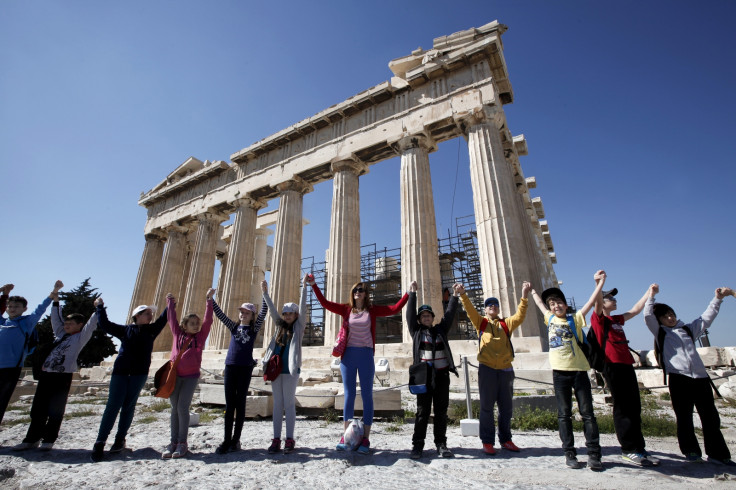Greek fury as British Museum loans 'looted' Parthenon Marbles to Russia
Greece's PM accused the UK of an 'affront to the Greek people'

Greece's prime minister Antonis Samaras accused the UK of an "affront to the Greek people" after the British Museum lent one of the Elgin Marbles to Russia.
Antonis Samaras said in a statement on Friday: "The British argument held until recently – that the Parthenon Marbles cannot be moved – is no longer valid.
"Just as the existence of the new Acropolis Museum invalidated the other British argument that there was no appropriate space for exhibiting the sculptures.
"The Parthenon and its marbles have been looted. The sculptures are priceless. We Greeks are at one with our history and civilisation, which cannot be broken up, loaned out, or conceded."
Neil MacGregor, director of the British Museum has denied that the Greek authorities have formally asked for the sculptures to be returned, or asked to have them on loan.
"The Greek claim to the Marbles is a political question," he told The Times. "What's clear is that the Greek position on the sculpture is the government's. It's not a position that comes out of an academic or conservation issue."
Dr MacGregor said that the loan to the Hermitage Museum in St Petersburg was the way forward in a "more co-operative phase".
Elena Korka, a senior culture ministry policymaker involved in restitution efforts since 1986, rejected the British Museum's claim that Greece had consistently refused to enter into talks over loaning the marbles to Athens: "We have never said 'never' to anything. We have said, so many times, we are open to mediation and that means we are open to loans as well."
TV historian Professor Mary Beard is undecided about the return of the marbles to Greece. "Personally I hold no brief for Lord Elgin (I have remained uncomfortably 'on the fence' on the whole issue for many a year)," she said in her Times blog.
Instead, she wrote about the importance of the marbles being seen by the people of Russia. "An extremely important work of art from the Parthenon has gone to a country where there are people who would never be able to see it – in Britain or in Greece. These are absolutely wonderful, first-rate works of art."
Eddie O'Hara, chairman of the British Committee for the Reunification of the Parthenon marbles called the loan to Russia "at best insensitive and at worse, frankly, provocative".
Greek officials have said they will not demand that Russia return the statue, but will continue to work through Unesco, to try to reach a settlement with Britain.
The secrecy surrounding the loan has led to accusations of secrecy on the part of the British Museum, who only announced the news after the artifact, a headless statue of the Greek river god Ilissos, was already at the Hermitage in St Petersburg. It will be on display until 18 January 2015 and will form part of an exhibition celebrating the museum's 250th anniversary.
Ownership of the so-called Elgin Marbles, once part of the 2,500-year-old Parthenon temple, is disputed by Greece.
It maintains that Lord Elgin removed them illegally while the country was under Turkish occupation as part of the Ottoman Empire. The items have remained in the British Museum for over 200 years.
The Greek government has hired a high-profile legal team including Amal Alamuddin, wife of George Clooney, who believes that there is "just cause" for the Parthenon Marbles to be returned to their country of origin.
© Copyright IBTimes 2025. All rights reserved.





















